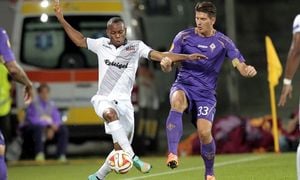Cardinal Angelo Bagnasco, former president of the Italian Bishops' Conference (CEI), addressed the growing speculation around Pope Francis's potential resignation, characterizing the discourse as "tormenti inutili," or "useless torments." Speaking to Adnkronos, Bagnasco firmly stated his view on the matter, which has gained traction particularly since the Pope's recent hospitalization.
The debate was ignited earlier when Cardinal Gianfranco Ravasi, the former Minister of Culture within the Vatican, opened the door to discussions about resignation, leaving many to speculate. Bagnasco, echoing the sentiments expressed by Vatican Secretary of State Pietro Parolin, emphasized the importance of staying clear of these discussions. "I heard Cardinal Parolin's declaration, and he rightly keeps himself away from such issues, which are exactly what we might call tormenti inutili," Bagnasco stressed. His comments are significant amid rising concerns over the Pope's health status, having been admitted to the Gemelli Hospital.
Since being hospitalized for pneumonia, speculations about Francis's ability to continue his papacy have intensified, with many calling the discussion of his resignation premature and inappropriate. Bagnasco conveyed his deep concern for the Pope, adding, "I offer my personal prayer for his swift recovery and return to his normal and customary activities." This plea signals the more intimate and compassionate side of the faith community's response to the situation.
The reverberations of such discussions are not only felt within the Catholic Church but have also attracted media scrutiny, raising significant questions about the timing and relevance of such conversations. Bagnasco's firm stance against this speculation reflects the unease many within the church feel about addressing the Pope’s health and leadership succession.
Interestingly, the Pope's hospitalization has also brought forth various reactions from prominent world leaders and the global community, underlining his influence beyond religious confines. Bagnasco’s assertion challenges the relevance of the dialogue concerning potential resignation at such a sensitive time, where prayers and thoughts should remain focused on the Pope's well-being.
Is it appropriate to discuss resignation when the immediate concern is the Pope's health? Bagnasco's comments suggest it is not. The cardinal sees no cause to dwell on the resignation debate, stating firmly, "It's inappropriate; there’s no reason to discuss these matters; it doesn’t seem right to me at all." This perspective resonates strongly against the backdrop of the Pope's hospitalization and should encourage the church community to rally for Francis rather than speculate on his future.
Overall, Bagnasco's comments serve as both reassurance and call for respect toward Pope Francis during his recovery. The dialogue urges the community to prioritize health concerns over discussions of leadership change, reflecting unity and commitment within the Catholic Church. Amidst the growing uncertainties surrounding the Pope's health, Bagnasco's insistence on respecting the situation by refraining from speculative debates about resignation appears to be prudent and well-considered.
Meanwhile, the Pope continues to receive prayers and well-wishes globally. Supportive messages from various leaders reflect the concern and reverence people hold for the Pope, who has addressed numerous global issues during his papacy. The urgent call for unity within the church emphasizes the need for collective strength and healing at this time.
Indeed, Cardinal Bagnasco's reflections on the current situation shed light on the delicate balance between the responsibilities of church leadership and the personal challenges faced by Pope Francis. Until the Pope can make his own statements about his future, many believe it is more appropriate to focus their efforts on prayer and support for his recovery.
Should the debate about the Pope's resignation not be reconsidered? Only time will tell, but for now, the collective prayers and community support appear to be the prevailing narrative. The upcoming weeks will be pivotal, not only for Pope Francis's health but for the Catholic Church as it navigates potential changes and prepares for whatever lies ahead.



